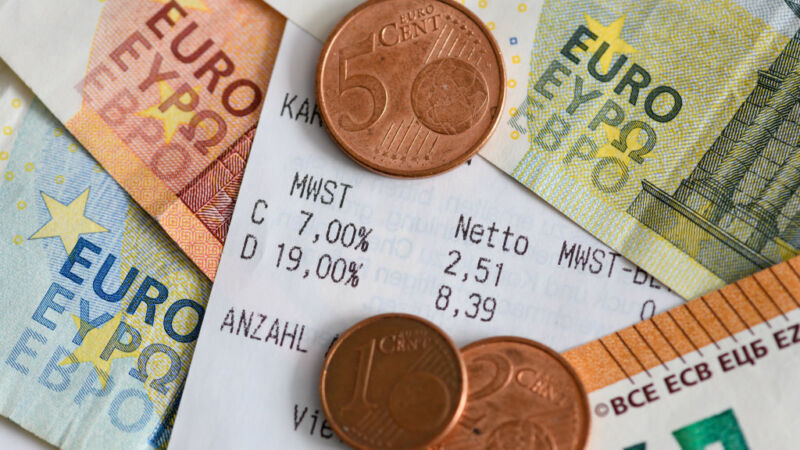Europeans vow to pursue digital tax plans after US “provocation”

The EU has defied the US by vowing to pursue its own plans for digital taxes after Washington pulled out of global negotiations on the matter and threatened to impose tariffs in retaliation against national levies.
France’s finance minister Bruno Le Maire on Thursday labeled the US decision to suspend the OECD-led talks a “provocation” and said Paris would apply a tax on big technology companies “whatever happens.”
Paolo Gentiloni, EU economy commissioner, said Brussels was prepared to advance its own EU-wide proposals. The UK Treasury has also vowed to press ahead with its digital tax, even as it is engaged in negotiations with Washington over a potential free trade agreement.
The warnings follow a letter to four European finance ministers in which US Treasury secretary Steven Mnuchin said he was pausing the negotiations because they had reached an “impasse.”
The move heightens transatlantic tensions, with the threat of more trade disputes as individual countries pursue their own taxation plans.
“There’s a real prospect we end up with a trade war” following the latest development, said Dan Neidle, tax partner at Clifford Chance.
The OECD process needed US agreement to make any deal legally watertight, and European nations would prefer getting the approval of US companies, Mr. Neidle said. So the likely result was “the process falls apart, and we see a plethora of unilateral digital services taxes,” which would turn into “an unprincipled mess” followed by US countermeasures.
Robert Lighthizer, US trade representative, has already announced a probe into whether digital tax measures in the UK, Spain, Italy, and other countries amount to an unfair trade practice, which would allow Washington under US law to unilaterally slap tariffs on imports from the countries involved.
“We weren’t making headway”
The US Treasury said on Wednesday that Washington had suggested a “pause” in the OECD talks to allow countries to “focus on responding to the COVID-19 pandemic and safely reopening their economies.”
“The other people getting together and deciding they’re going to take action against the United States without our acquiescence is something that’s not acceptable,” Mr. Lighthizer told US lawmakers on Thursday. “We weren’t making headway and [Mr. Mnuchin] made the decision that rather than have them go off on their own, he would just say we’re no longer involved in the negotiations.”
In an interview on France Inter radio, Mr. Le Maire expressed shock at the US “threatening [allies] repeatedly with sanctions.”
Paris had agreed to suspend the collection of its own national tax during the international negotiations. Tech companies were still accumulating French tax liabilities in the meantime, which France has promised to waive once a global agreement had been sealed.
“If needed, we will react as one”
“We were very close to an agreement on the taxation of the digital giants, which are perhaps the only ones in the world to have profited immensely from the coronavirus,” Mr. Le Maire said. He said that if there was no international agreement this year because of the US blockage, France would reinstate its levy.
Mr. Gentiloni said he hoped the US decision would be a “temporary setback rather than a definitive stop,” reiterating that the commission was seeking a global solution. “If that proves impossible this year, we have been clear that we will come forward with a new proposal at EU level,” he said.
“Meanwhile, the commission stands as one with all member states that have moved forward with their own digital services taxes. And if needed, we will react as one.”
Rishi Sunak, the UK’s Chancellor of the Exchequer, put Britain’s digital services tax into law in March, and it was implemented in April with an aim of raising £280 million this financial year, although multinational tech companies will not have to pay any money until 2021 to the UK tax authorities.
Two pillars
The OECD has been overseeing work to find a more equitable way of taxing multinational companies and had proposed a compromise based on two pillars.
The first suggested countries would be allowed for the first time to have some rights to tax profits made on the basis of sales in their jurisdictions. This would not just apply to US tech giants but would also give the US, for example, limited taxing rights over European luxury goods companies.
The second was that there would be a global minimum corporate tax rate to stop countries lowering corporate tax rates in an attempt to shift company headquarters to their jurisdictions.
Mr. Mnuchin insisted discussions on the second pillar remained on track and that the parties were “much closer to an agreement.” He said the US hoped to bring these talks on a global minimum tax to a conclusion this year.
The second pillar does not need agreement by all countries involved so is seen by the OECD as an easier element on which to forge consensus, but this will not satisfy many European countries.
© 2020 The Financial Times Ltd. All rights reserved. Not to be redistributed, copied, or modified in any way.
https://arstechnica.com/?p=1685040